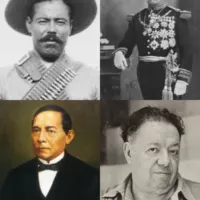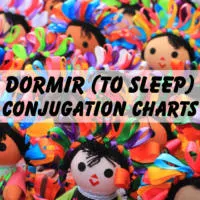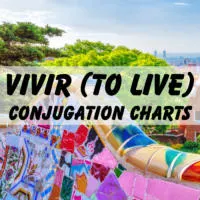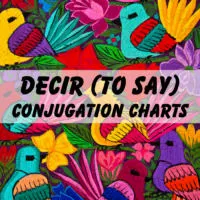It’s not hard to draw up a list of famous Mexican people. In arts, music, sports, and politics, the country has produced many personalities known far beyond Mexico. Here are 20 of the biggest names from Mexico’s past and present.
Traer means to bring, to wear and to carry in Spanish. The conjugation of traer in the present tense is: Yo traigo (I bring), tú traes (you bring), él/ella/usted trae (he/she brings, you bring), nosotros traemos (we bring), vosotros traéis (you bring) and ellos/ellas/ustedes traen (they/you bring).
Mexico’s rich musical heritage embraces a diversity of styles that goes beyond the folk music Mexico is commonly known for. To decipher the ever-evolving music scene, let’s look at the famous Mexican singers who shaped it.
Oír means both “to hear” and “to listen” in Spanish. The conjugation of oír in the present tense is: Yo oigo (I hear), tú oyes (you hear), él/ella/usted oye (he/she hears, you hear), nosotros oímos (we hear), vosotros oís (you hear) and ellos/ellas/ustedes oyen (you/they hear).
Salir means both “to leave” and “to go out” in Spanish. The conjugation of salir in the present tense is: Yo salgo (I leave), tú sales (you leave), él/ella/usted sale (he, she leaves; you leave), nosotros salimos (we leave), vosotros salís (you leave) and ellos/ellas/ustedes salen (they/you leave).
The Spanish verb volver means to return, come back and do again. The conjugation of volver in the present tense is: Yo vuelvo (I return), tú vuelves (you return), él/ella/usted vuelve (he/she returns, you return) nosotros volvemos (we return), vosotros volvéis (you return) and ellos/ellas/ustedes vuelven (they/you return).
Dormir (Meaning: to sleep in Spanish) is a an essential verb for all students. The conjugation of dormir in the present tense is: Yo duermo (I sleep), tú duermes (you sleep), él/ella, usted duerme (he/she sleeps, you sleep), nosotros dormimos (we sleep), vosotros dormís (you sleep) and ellos/ellas/ustedes duermen (they/you sleep).
Vivir (Meaning: to live in Spanish) is an essential verb for students of all levels. The conjugation of vivir in the present tense is: Yo vivo (I live), tú vives (you live), él/ella/usted vive (he/she lives, you live), nosotros vivimos (we live), vosotros vivís (you live) and ellos/ellas/ustedes viven (they/you live).
The verb comer (Meaning: to eat in Spanish) is an essential verb for students of all levels. The conjugation of comer in the present tense is: Yo como (I eat), tú comes (you eat), él/ella/usted come (he/she eats, you eat), nosotros comemos (we eat) vosotros coméis (you eat) and ellos/ellas/ustedes comen (they/you eat).
Decir (Meaning: to say, to tell) is a essential Spanish verb for all students. The conjugation of decir in the present tense is: Yo digo (I say), tú dices (you say), él/ella/usted dice (he/she says, you say), nosotros decimos (we say), vosotros decís (you say) and ellos/ellas/ustedes dicen (they say).










